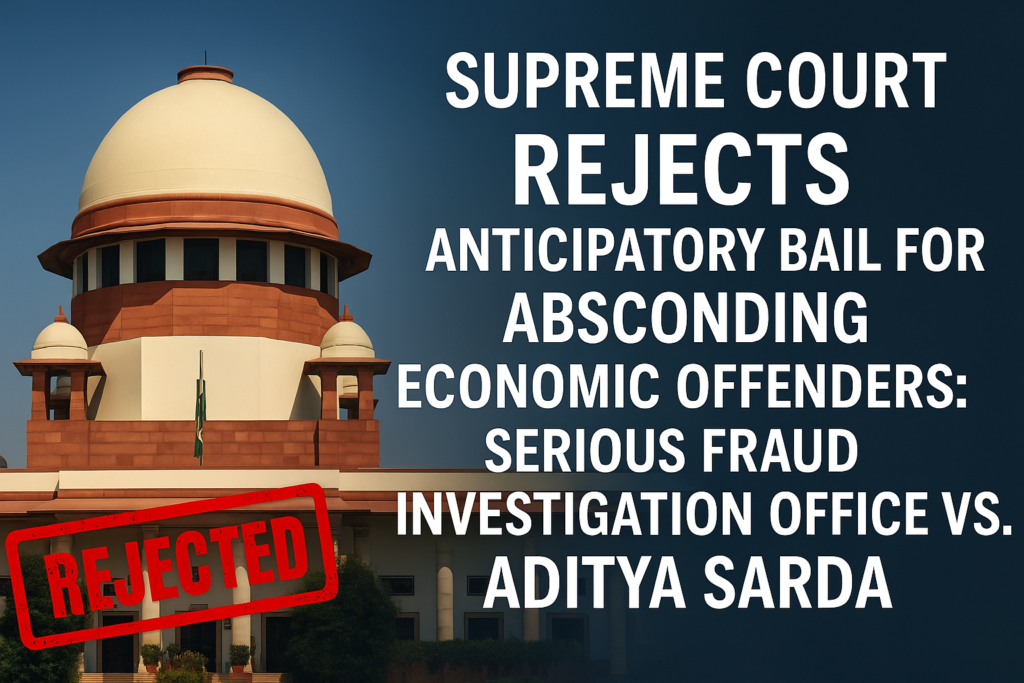In a pivotal judgment, the Hon’ble Supreme Court of India ruled against the order of recovery of excess payments made to employees post-retirement in the case of Jogeswar Sahoo & Ors. v. District Judge, Cuttack & Ors.. The Court emphasized that recoveries of payment made to the employees without misrepresentation or fraud by them, especially after retirement, are inequitable and unsustainable.
This case strengthens the employee rights, especially for retired persons, while outlining limits on retrospective administrative actions.
Case Background
The appellants were former stenographers and personal assistants in the District Judiciary of Cuttack, Odisha and they were granted financial benefits in 2017 as part of their retrospective promotion under the recommendations of the Shetty Commission. These benefits were credited following the Office Order No. 63, granting promotions retrospectively from 2003.
However, after three years the appellants retired in 2020, the authorities issued orders in September 2023 to recover the financial benefits that were granted to them earlier. The justification for recovery was an alleged erroneous interpretation of the Shetty Commission’s recommendations. The appellants were not provided with an opportunity to be heard before these recovery orders were issued.
The aggrieved appellants approached the High Court of Orissa, which dismissed their writ petition. They subsequently appealed to the Supreme Court.
Key Issues Raised
- Can excess payments made to employees, without fraud or misrepresentation, be recovered post-retirement?
- Is recovery without giving the employee an opportunity to be heard legally sustainable?
Court Observations
Excess payment was made without Misrepresentation or Fraud
The Court reaffirmed its settled position that recovery is not permissible when excess payments are made due to administrative errors, without fraud or misrepresentation on the part of the employee.
The appellants were not responsible for any wrongdoing; the benefits were granted by the employer based on an interpretation of recommendations that was later deemed incorrect.
Equity and Hardship
While Referring to judgments such as Sahib Ram v. State of Haryana and Thomas Daniel v. State of Kerala, the Court stressed that recovery from retired employees or low-income employees causes undue hardship. Recovery, in such cases, is barred on grounds of equity.
Violation of Procedural Fairness
The Court noted that the appellants were not given an opportunity of being heard before the recovery orders were issued. This violated principles of natural justice and procedural fairness.
Principles from Precedent Cases
The Court reviewed its earlier rulings, emphasizing that recovery is impermissible under circumstances such as:
- Recovery from retired or soon-to-retire employees.
- Recovery of payments made over five years ago due to administrative errors.
- Recovery that causes excessive hardship or is inequitable.
Judgment
The Supreme Court allowed the appeal, setting aside the Orissa High Court’s decision and the recovery orders issued in September 2023.
The Court ruled that the excess payments made to the appellants in 2017 could not be recovered as:
- There was no fraud or misrepresentation by the appellants.
- Recovery after retirement was inequitable and unsustainable.
Judgements Referred
Sahib Ram v. State of Haryana (1995 Supp (1) SCC 18)
This case restrained the recovery of payments that were granted due to misinterpretation of rules or orders, without any fraud or misrepresentation by the employee. It established the principle that employees cannot be penalized for errors made by the employer.
Shyam Babu Verma v. Union of India (1994) 2 SCC 521
The Court barred recovery of excess payments from employees, emphasizing that such recovery would be inequitable when the payments were not due to any fault of the employees.
Union of India v. M. Bhaskar (1996) 4 SCC 416
This case reiterated that recovery of excess payments that were made due to the erroneous interpretation of rules by the employer cannot be justified if it causes hardship to employees.
V. Gangaram v. Regional Jt. Director (1997) 6 SCC 139
The Court ruled against the recovery of payments made erroneously by the employer unless fraud or misrepresentation by the employee was proven.
Thomas Daniel v. State of Kerala & Ors. (2022 SCC Online SC 536)
It is one of the most recent decision regarding this. This case reinforced that excess payments made due to administrative errors should not be recovered if there was no fraud or misrepresentation by the employee, particularly after retirement.
State of Punjab v. Rafiq Masih (White Washer) (2015) 4 SCC 334
This landmark case described certain situations where recoveries by employers would be impermissible, such as:
- Recovery from retired or soon-to-retire employees.
- Recovery of payments made more than five years prior to the recovery order.
- Recovery causing undue hardship, inequity, or arbitrariness.
Key learnings
- Protection for Retired Employees
Recovery of excess payments from retirees is barred unless fraud or misrepresentation is involved.
- Administrative Accountability
Employers are responsible for errors in granting benefits and cannot unjustly penalize employees for such mistakes.
- Natural Justice
Recovery without prior notice or opportunity to be heard is procedurally unfair and legally unsustainable.


